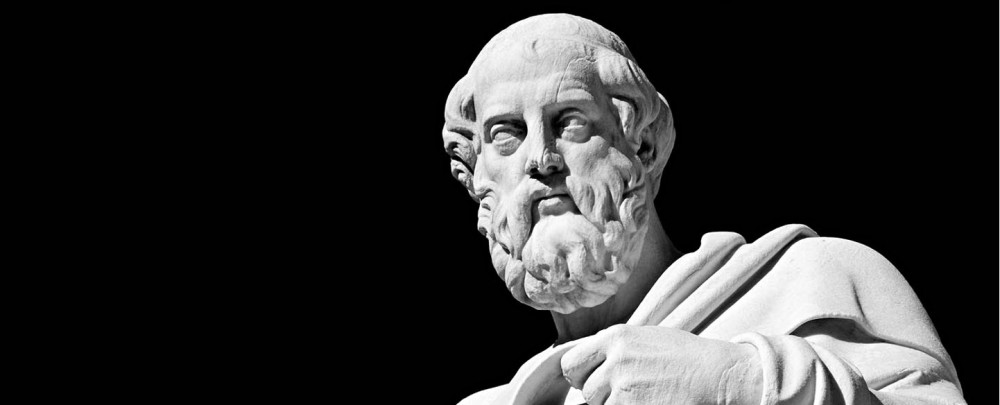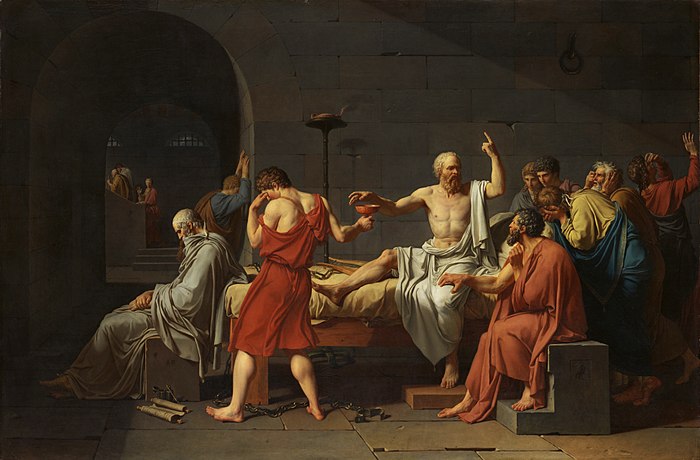According to the Oracle at Delphi, Socrates was the wisest of them all. It is usually considered unwise, however, to publicly attack the political class and humiliate their intellect, capability and righteousness. This is particularly true when the government is in a weakened and, therefore, volatile position. Why then would Socrates, nobel pillar of wisdom, stand up to a system that would eventually, inevitably, murder him?
The old philosopher was not the first to provoke the hostilities of the state at the wrong time…nor would he be the last.
One only has to think of the modern day dissenters, the infamous ‘whistleblowers’, to know the powers that be do not like to be exposed. If an individual has the gumption to reveal undesired truths, uncomfortable realities, the state will react…swiftly and with its own brand of “justice.” In the case of our contemporaries, that may mean being indefinitely detained without trial or cooped up in the ecuadorian embassy. For Socrates, it resulted in a sham indictment and a death sentence for a 70 year old man.
Like our modern examples, Socrates committed an error of inconvenient honesty in a declining empire. For this, he would pay the ultimate price.
The trial of Socrates took place in the year 399 B.C. – a mere 5 years after the fall of Attica by Spartan spear and pluck. The Golden Age of Athens came to a brutal and disappointing end. Socrates himself had been unpopular for a substantial amount of time already, and yet no one saw him as a legitimate threat until after the Peloponnesian war had done its damage.
In 423 B.C., for instance, Aristophanes authored his famous satirical play, The Clouds. It was produced a full 24 years before the trial of Socrates. Here the playwright unfairly characterized Socrates as a despised Sophist, one charging a fee for his services. He also drew the philosopher as, ironically, a pre-socratic thinker, questioning the earth below him and the sky above. But no one threw Socrates in jail then. The poet, politicians and craftsmen had been humiliated but, critically, the state’s safety was not yet at stake. It is the failing empires, self-conscious at their weakening power, that happily suspend justice to muffle dissenting voices.
Which makes us ask once more, why would Socrates, or anyone, speak against such a crumbling authority?
Bradley Manning, who was accused of releasing damning and dishonorable pictures and videos of his own government, may have furnished a response to a similar question in an online chat:1
“If you had free reign over classified networks…” he is said to have written, “and you saw incredible things, awful things… things that belonged in the public domain, and not on some server stored in a dark room in Washington, DC … what would you do?“God knows what happens now. Hopefully worldwide discussion, debates, and reforms… I want people to see the truth…because without information, you cannot make informed decisions as a public.”
Julian Assange, the controversial figure behind online transparency activist group, Wikileaks, identified a similar goal:
“You have to start with the truth. The truth is the only way that we can get anywhere. Because any decision-making that is based upon lies or ignorance can’t lead to a good conclusion”. 2
It appears the pursuit of truth, the desire to follow what one believes is good, is nothing new.
We can’t know for sure, of course, but it seems that Socrates was spurred on by similar feelings, at least according to Plato’s description of the final trial. In Plato’s earliest dialogue, The Apology, written shortly after Socrates’ execution, the student rises to his mentor’s defense. He ensured that Socrates’ attackers look petty and capricious, while the philosopher king appears noble, defiant and unwavering.

Marble statue of the ancient greek philosopher Plato
The piece begins with Socrates pledging to speak clearly, truthfully and without the high flown speech, for which his opposition is famous. Importantly, he does not apologize, though the name of the text would suggest as much. The title actually derives from the Greek word “apologia,” which translates as a defense, or a speech made in defense. The dialogue concerns Socrates attempt to defend himself and his conduct, not to say sorry.
The philosopher sets himself apart immediately and without compromise. He then proceeds to explain the root of the situation: The Delphic oracle had essentially crowned him the smartest man. In disbelief, Socrates set out to prove this wrong by finding men more intelligent than himself. What he found, however, were pompous busybodies who enjoyed speaking at length on things they did not know. Socrates found that through a series of questions, he could easily reveal their ignorance, something no one’s pride takes easily. Eventually he concluded that yes, he could be the wisest man, simply due to the fact that he knows that he knows nothing.
Socrates then address the charges against him – that he had corrupted the youth and acted impiously. With albeit imperfect logic, he proceeds with the elenchus, or cross-examination, against Meletus, the man primarily responsible for bringing Socrates before the jury. If the youth have been corrupted, then why are his pupils here on his side, along with their relatives? Importantly, he references Plato as one of his pupils.
Socrates then makes the analogy that he is a gadfly and the state is a fat and lazy horse. A bloated thoroughbred that has enjoyed too many comforts and would sleep forever, if the gadfly did not do its duty the keep the horse awake.
At no time does Socrates plead for mercy, ask for forgiveness or beg the judges for leniency. Eventually the ballot is cast and, by a close margin, Socrates is found guilty. After a little deliberation the sentence is set: death.
Still, even now, Socrates stays true to his position, defiant in his apologia and sure of his virtue. When asked why he should follow any pursuit that may result in death, Socrates responded:
“You do not speak well, Sir, if you think a man in whom there is even a little merit ought to consider danger of life or death, and not rather regard this only, when he does things, whether the things he does are right or wrong and the acts of a good or a bad man.” 3
But if one were to imagine that Socrates was unwise by confronting a goliath much larger than him, they would prove to be the foolish one. The truth is that Socrates never wanted to face the political body. That is why he didn’t join the public life. Instead, he always spoke to individuals. Facing the government would only mean death.
“…for you may be quite sure, men of Athens, that if I had undertaken to go into politics, I should have been put to death long ago and should have done no good to you or to myself. And do not be angry with me for speaking the truth; the fact is that no man will save his life who nobly opposes you or any other populace and prevents many unjust and illegal things from happening in the state.”4
And so, Socrates chose to address the individual rather than purposefully face the state…until, of course, the state found him. Maybe this is why Socrates reached the ripe old age of 70. As for Julian Assange and Bradley Manning, it’s too early to tell.
Socrates did, ultimately, accept the punishment of death. There is no reason to fear what we do not know, he argued. A point that might have comforted him as he marched into the great unknown beyond this life. Perhaps, reflecting on the years he had already lived, Socrates welcomed a memorable end.
Maybe it is the death of socrates that makes his life, his search for truth, so well known…the sort of pursuit that can inspire individuals thousands of years on.
1. https://firedoglake.com/merged-manning-lamo-chat-logs/
2. “Julian Assange, monk of the online age who thrives on intellectual battle”. The Guardian. (https://www.guardian.co.uk/media/2010/aug/01/julian-assange-wikileaks-afghanistan) 2010-08-01. Retrieved on 2010-08-01.
3. 28b, The Apology by Plato https://www.perseus.tufts.edu/
4. 31d – 31e, , The Apology by Plato https://www.perseus.tufts.edu/
The Death of Socrates … and the State that Killed Him was written by Anya Leonard











No comments
Trackbacks
Our apologies, you must be logged in to post a comment.